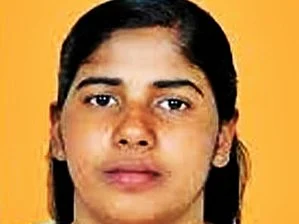Nimisha Priya: 10 things to know about the Kerala nurse’s tragic death row case in Yemen
Accused of murder, Kerala nurse now awaits execution. Here’s how it all unfolded...

Dubai: Nimisha Priya, a nurse from Kerala’s Palakkad district, moved to Yemen in 2008 with hopes of securing a better future for her family.
Like many Indian healthcare workers abroad, she worked hard, first in hospitals and later opening her own clinic to become financially independent.
But what began as a journey of ambition and sacrifice spiralled into a tragedy involving alleged abuse, a desperate escape plan and a death that has left her facing execution in a foreign land. Now, imprisoned in war-torn Yemen under Houthi control, she stands convicted of murder and is awaiting her fate.
Here are 10 key things to know about the Nimisha Priya case:
1. Convicted of murder in Yemen
Nimisha Priya, a nurse from Kerala, was found guilty of murdering her Yemeni business partner, Talal Abdo Mahdi, in 2017. She is currently imprisoned in Sana’a, under the control of Houthi forces, and faces execution under Yemeni law.
2. Death sentence and appeals
After being arrested while trying to flee the country, Priya was convicted of murder in 2018. A trial court sentenced her to death in 2020. Her appeal was dismissed by Yemen’s Supreme Judicial Council in November 2023 and the country’s president approved the execution order in 2024. Her execution was originally scheduled for July 16, 2025.
3. The crime
Priya claims that Mahdi had confiscated her passport and subjected her to repeated harassment. In a desperate attempt to escape the country, she injected him with sedatives to retrieve the document. However, the sedatives proved fatal. She then dismembered the body in panic and attempted to dispose of it in a water tank. She was caught at the Saudi-Yemeni border and taken into custody.
4. Victim’s family demands Qisas (retaliation)
Under Yemeni law governed by Sharia, the victim’s family can demand qisas, or retaliation in kind. On July 14, Talal’s brother, Abdel Fateh Mahdi, reiterated to BBC Arabic that the family would not accept any offer of blood money and insisted on execution, dismissing any allegations of abuse by Talal as fabrications by Indian media.
5. Blood money offer rejected
To save her life, Nimisha’s supporters raised $1 million (approximately ₹8.5 crore) to offer as diya (blood money) to the victim’s family. This is the only legal avenue left to avert execution under Yemeni law. However, the family refused the offer, calling it a matter of honour and refusing to pardon her.
6. Execution postponed — for now
While her execution was originally set for July 16, 2025, it has been temporarily postponed. This brief reprieve comes amid renewed attempts to negotiate with the victim’s family and increase international pressure to seek clemency.
7. Grand Mufti’s quiet intervention
India’s Grand Mufti, Sheikh Kanthapuram A.P. Aboobacker Musliyar, played a key behind-the-scenes role in the postponement. Using his religious network, he reached out to Yemeni Sufi scholars, including those close to the Mahdi family. His involvement, outside of government channels, is believed to have created a rare opportunity for dialogue.
8. India’s limited diplomatic leverage
India does not have formal diplomatic ties with the Houthi regime that controls Sana’a. As a result, the government has relied on informal channels and backdoor negotiations. On July 14, Attorney General R. Venkataramani informed the Supreme Court that India had exhausted all possible efforts.
9. Emotional and financial toll on family
Nimisha’s mother travelled to Yemen in 2023 to plead for forgiveness. The family has incurred debts exceeding ₹60 lakh, much of it from legal and logistical expenses. Nimisha's husband, Tomy Thomas, remains in contact with her and continues to appeal for public support and mercy.
10. A slim window of hope remains
Although all legal options have been exhausted, a pardon from the victim’s family could still save her. The family’s silence since rejecting the diya offer has left Priya’s fate uncertain. Religious leaders, activists, and her family continue their efforts — but time is running out.
Sign up for the Daily Briefing
Get the latest news and updates straight to your inbox
Network Links
GN StoreDownload our app
© Al Nisr Publishing LLC 2025. All rights reserved.
